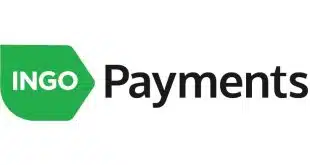The Accel/Exchange electronic funds transfer network has signed up a handful of issuers for an Internet-based PIN debit pilot that processed its first transaction, for $9.49, on Wednesday, according to Michael Kelly, general manager of the Morris Plains, N.J.-based network, a unit of Milwaukee-based bank processor Fiserv Inc. Kelly says between three and five issuers have committed to participate so far in what he characterizes as a “soft launch” of the service involving bank and network employees. Actual consumer transactions will come later. “We're shooting for general availability towards the summer or fall,” Kelly tells Digital Transactions News. Meanwhile, Acculynk Inc., the Atlanta-based processor whose technology is supporting Accel/Exchange's pilot, says two other networks have agreed to implement its PIN debit system, called PaySecure. One is the NYCE network, a unit of Milwaukee-based processor Metavante Corp. (Digital Transactions News, Dec. 3, 2008), which has not yet done the implementation work to process transactions. The other network, which Acculynk will not name, has implemented PaySecure and is actively wooing issuers, according to Ashish Bahl, Acculynk's chief executive. He adds that four unnamed merchants have signed up so far to accept transactions, including a hardware-store chain and a retailer of recreational attire. And two merchant acquirers, Elavon and Merchant e-Solutions Inc., have signed on to recruit more merchants, with a third unnamed merchant processor in the pipeline. Lending further impetus to efforts to process PIN debit transactions on the Web, Acculynk competitor HomeATM, a Montreal-based technology company that relies on a homegrown card reader/PIN pad that links to the PC's USB port, tells Digital Transactions News its application programming interface will be integrated into CardinalCommerce Corp.'s popular Centinel processing platform under a new agreement. The platform supports a wide array of alternative payment methods for e-commerce merchants. HomeATM is handling approximately $1 million a month in online PIN debit transactions on an installed based of 40,000 readers, says Ken Mages, chairman and chief executive, up from 5,500 a little over a year ago (Digital Transactions News, Dec. 18, 2007). Now the company is focusing on person-to-person transactions through remittance processors and social networks, Mages says. The Accel/Exchange pilot is starting about two months later than originally expected (Digital Transactions News, Oct. 23, 2008). But, given the turmoil in the banking industry over the past few months, Acculynk's Bahl says he'll accept the delay. “The biggest unexpected glitch was the financial meltdown,” he says. “To have a delay of only two months is astounding.” Unlike HomeATM's system, which is hardware-based, Acculynk's technology depends on software that presents a so-called floating PIN pad on the PC screen. Users enter their PINs by means of mouse clicks. Interchange pricing hasn't yet been firmly established, says Accel/Exchange's Kelly. “We think [online PIN debit has] a value greater than brick-and-mortar PIN debit, but whether it's bumping up on signature debit, we're not sure,” he says. One objective of the pilot, he says, is to answer that question. Signature debit typically carries higher interchange than PIN debit, but PIN debit's proponents argue it also carries higher fraud costs for issuers. In the midst of progress for both the hardware- and software-based solutions, however, a controversy has erupted over security. This is an especially charged topic now in the wake of a string of major data breaches, including recent hacks at processors Heartland Payments Systems Inc. and RBS WorldPay Inc. HomeATM's Mages contends Acculynk's product is vulnerable to hackers who could, for example, screen-scrape users' sessions as they click on the floating PIN pad. With HomeATM's product, cards are swiped and PINs entered only on the peripheral device, with all data encrypted from swipe to transmission to issuers. “If I can see it on your screen, I can capture it,” Mages argues. Without going into details, Acculynk's Bahl counters that each click is encrypted in ways intended to frustrate hackers. At the same time, he adds, the resources necessary to predict when to start and stop screen scraping with each click would be cost-prohibitive even for determined fraudsters. For now, Accel/Exchange is satisfied with the security of Acculynk's system. “We did our own [investigative] work, then we sent in a third-party auditor,” says Kelly. “They approved it.” Kelly says he can't predict which method will ultimately dominate what is now a nascent business in processing Web-based PIN debit transactions. “Who knows who's going to be the right solution?” he says. “For us, Acculynk most accurately mimics the consumer experience at a grocery store.”
Check Also
QorPay Adds Services From Visa’s Cybersource to Its Payments Menu
QorPay Inc. reported Thursday that it has integrated its payment technology with Visa Inc.’s Cybersource …







